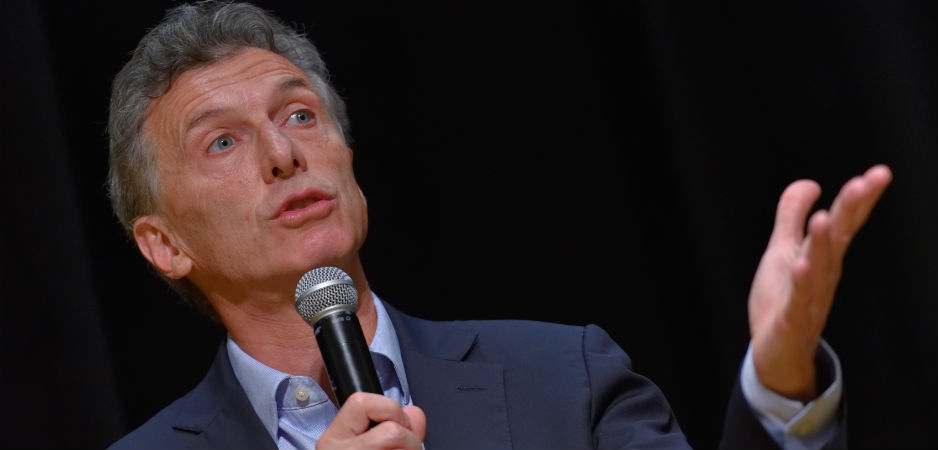Lionel Messi has finally won the World Cup. For years, debate has raged about who is better: Messi or Cristiano Ronaldo. The latter has scored more goals but, as per the likes of players-turned-pundits Gary Lineker and Jamie Carragher, the former is the better player.
In a viral video, Carragher argued that Messi has a better goal record than Ronaldo. Furthermore, Messi is a playmaker who can run a game. He “can take you to a place where you can’t actually believe what you are seeing.” The affable and insightful Lineker believes that Messi “is the greatest player to have ever played the game.”
In Maradona’s Shadow
Until recently though, Messi was never quite loved in his native Argentina. He was seen as a Barcelona man who never gave his heart and soul for the national team. Messi was always compared unfavorably to another diminutive left-footed player who was the love of the nation: Diego Maradona. In the 1986 World Cup, Lineker scored six goals and won the Golden Boot, the award for the top scorer. Yet this was Maradona’s tournament. He scored five goals and made five assists. Argentina beat Germany 3-2 in the final.
One match from that 1986 World Cup defines Maradona. He was both devil and god in the space of a few minutes. England faced Argentina in the quarter finals on June 22 at the Estadio Azteca in Mexico City. Maradona knocked the first goal in with his hand. It has come to be known as the “hand of God” goal and still infuriates many in England. In their eyes, Maradona cheated, which he most certainly did.
Four minutes later, he would go on to score the “goal of the century.” Maradona collected the ball in his own half, spun around and left multiple English players trailing in his wake. He dribbled past world class players and dummied one of the great goalkeepers to knock the ball into the empty net. That moment still lives on as a moment of pure footballing genius. Messi was expected to provide such moments of magic for Argentina and deliver the World Cup, which he failed to do until Sunday, December 18, 2022.
Maradona: A Devilish Argentine Saint
The two goals of Maradona capture not only the man but also his nation. Argentines have long treated football both as love and war, and, as we know, all is fair in love and war. Argentines play football with precisely this spirit.
In 1978, Argentina hosted the World Cup. To this date, there are suspicions that the military dictatorship then ruling the country played dirty. At the time, the best player in the world was Johan Cryuff and the best team was arguably the Netherlands. Cryuff never showed up because a 1977 kidnap attempt shook him up. Spain had just become a democracy after General Francisco Franco’s death and some insinuate that this incident might have been engineered by the Argentine military junta’s dirty tricks department.
At the time, this regime was rounding up people by the thousands and killing them. A documentary titled Power, Corruption & Lies recounts how the Argentine government manipulated the 1978 World Cup in every way possible to ensure that the home nation won. It is for good reason that Esquire called this tournament “the dirtiest World Cup of all time.”
Eight years later, Argentines celebrated Maradona’s 1986 hand of God moment as revenge for defeat in the 1982 Falklands War. This war began when Argentina’s military junta invaded what they called Islas Malvinas. The British controlled these islands in the South Atlantic and called them the Falkland Islands. Argentine generals launched this invasion to divert attention from a terrible economy and mass unrest. Capturing these islands from the imperialists who had seized them would have boosted the regime. This was supposed to win the military kudos for their patriotism and revive their sagging fortunes. Instead, this 1982 misadventure led to bitter defeat and national disgrace. Maradona’s two goals, one deceitful and the other sublime, were seen as sweet Argentine revenge.
Ghosts of the Past
Like many other countries, Argentina is deeply tortured by its past. Once Argentina was the promised land. Waves of immigrants flocked to this New World nation. As in Canada and the US, European immigrants slaughtered indigenous peoples. Very few of them are left in the country. Even more than the US, Argentina practiced ethnic cleansing of the indigenous population.
Argentina was similarly ruthless with Africans. About 200,000 arrived on the shores of the Río de la Plata in the early colonial days. By the end of the 18th century, one-third of the population was black. Today, hardly any of them remain. Argentines got rid of blacks, packing many of them off to neighboring Brazil.
Jorge Luis Borges is called the nation’s greatest writer and, in the eyes of many, its soulkeeper. In 1975, he famously commented, “This country has no tradition of its own.” He went on to say: “There’s no native tradition of any kind since the Indians here were mere barbarians. We have to fall back on the European tradition, why not? It’s a very fine tradition.” Note that his grandmother, Frances Anne Haslam, had come from Staffordshire, England. In 1920 Borges turned 21. By then “over half the population of his native Buenos Aires had been born in Europe, the result of a vast wave of late nineteenth-century and early twentieth-century immigration.”
Argentina’s self-conscious European identity puts them in a strange position. They look down on other South American nations, which are far more mixed race, with contempt. However, they are not exactly Europeans either. An Argentine friend once remarked, “We are an odd people. We have a superiority complex vis-à-vis other South Americans and an inferiority complex vis-à-vis the Europeans.”
The Rosy Future Turned Into a Nightmare
For all the slaughter of the natives and the elimination of Africans, Argentines did not become rich like the Americans. In 1913, Argentina was the world’s 10th richest country. The future seemed bright. After all, European immigrants in a fertile land were bound to create el paradiso.
With the fertile Pampas, the majestic Andes and the beautiful Buenos Aires, Argentina has few excuses for failure. An October 2019 Australian government note observes that Argentina can produce food for 400 million people (its population is just over 46 million). It has the world’s second largest shale gas reserves and fourth largest shale oil reserves. Argentina also has the third largest reserves of lithium and large quantities of gold, silver and copper.
Instead, Argentina has become the biggest borrower of the International Monetary Fund (IMF). Pakistan negotiated a $6 billion bailout and is haggling with IMF officials over the release of the latest $1.1 billion tranche to pay for imports and service foreign debts. In contrast, Argentina got a $44 billion bailout and has just spent $1 billion for “bond buyback,” depleting its “scarce” foreign exchange reserves. The IMF has warned Argentina but the country has a history of defaulting on its international sovereign debt.
If there was a World Cup for a country that blew it, Argentina would be in the fray. Unlike Canada, Australia or New Zealand that started at similar levels of economic development in the early 20th century, Argentina imploded. The country was unable to develop industry or stable institutions. Military coups, tumultuous electoral fraud, erosion of checks and balances, and the rise of populists like Juan Perón condemned Argentina to chaos. Today, 17 million people—43% of Argentina’s population—are living below the poverty line. If the economic crisis continues, this percentage could rise to 50%.
Just as Maradona’s drug abuse and dissolute lifestyle destroyed him, political incompetence and economic mismanagement have turned Argentina into a basket case.
Football, a Religion: Saint Messi Floats Above Pope Francis
For a country that has spectacularly lost the plot for a century, football is a religion that offers salvation. Foreigners who visit the country are taken aback by the primal passion the game excites. Hollywood actor Matt Damon has been to many sporting events but he says, “the craziest thing I have ever seen without a doubt is a soccer game in Argentina.” Armed police, barbed wire and no-man’s land between warring fans of rival sides are all par for the course.
When Argentina won the World Cup last year, an estimated two million people celebrated in the city center. They gathered around the city’s iconic obelisk designed by Argentine modernist architect Alberto Prebisch. The sea of people around the 67.5 meters tall icon was heaving with joy and relief. After many bitter years of disappointment, Argentina had finally won the World Cup a third time. Unlike 1978, this one was not rigged by a murderous military regime. Unlike 1986, there was no hand of God dodginess on the way to victory.
Of course, the Dutch team might complain that the referees favored Argentina in an ill-tempered match. The French and many others did not like Argentine goalkeeper Emi Martínez’s gamesmanship in throwing the ball away during the penalty shootout. On the whole though, Argentina won this World Cup fair and square. Manager Lionel Saloni, unsung hero Ángel di María, late bloomer Martínez and magical Messi eventually scripted a fairy tale.
Pope Francis is an Argentine and a football fan. Unlike Brazil, Argentina has not fallen to evangelicals. Catholicism is still dominant. An Argentine pope is a matter of great pride to the country. Yet the favored son of this Europeanized New World Catholic paradise lost is Messi. He has delivered what the nation most wanted. With inflation hitting 99%, poverty rising and an already grim economic crisis worsening, Saint Messi and his loyal foot soldiers have given Argentina something to smile about.
The views expressed in this article are the author’s own and do not necessarily reflect Fair Observer’s editorial policy.
Support Fair Observer
We rely on your support for our independence, diversity and quality.
For more than 10 years, Fair Observer has been free, fair and independent. No billionaire owns us, no advertisers control us. We are a reader-supported nonprofit. Unlike many other publications, we keep our content free for readers regardless of where they live or whether they can afford to pay. We have no paywalls and no ads.
In the post-truth era of fake news, echo chambers and filter bubbles, we publish a plurality of perspectives from around the world. Anyone can publish with us, but everyone goes through a rigorous editorial process. So, you get fact-checked, well-reasoned content instead of noise.
We publish 2,500+ voices from 90+ countries. We also conduct education and training programs
on subjects ranging from digital media and journalism to writing and critical thinking. This
doesn’t come cheap. Servers, editors, trainers and web developers cost
money.
Please consider supporting us on a regular basis as a recurring donor or a
sustaining member.
Will you support FO’s journalism?
We rely on your support for our independence, diversity and quality.







